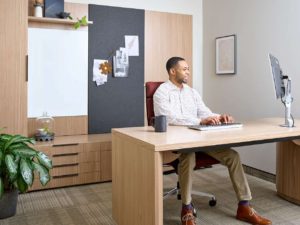Sustainable Furniture Demand Requires Certified Manufacturers

Product sustainability has shifted well beyond a PR stunt. It’s an imperative, and one that most Americans are willing to pay a little bit extra to obtain. In its 2021 Business of Sustainability Index, GreenPrint found that 64% of Americans were willing to open their wallets a bit wider to purchase sustainable products. The problem lies in recognizing which products were created with sustainable methods. The survey also found that 74% of people don’t know how to identify when or if a product fell into the “green” category.
Given the already high price of furniture, it’s easy to assume that consumers don’t care about whether their furniture is sustainable or not, nor are willing to pay extra for a product that’s already a considerable part of their budget. Yet the furniture market as a whole is experiencing incredible growth, buffered in large part by more home and business consumers purchasing eco-friendly products.
The need for both sustainable products and a way to identify which products fit that category is why sustainability certifications are important, especially for furniture manufacturing. As much as we’d like it to be true, not all manufacturers are honest about the provenance of their products. That being the case, buyers should be aware of the type of sustainability certifications that exist, the authorizing bodies for those certifications, and what logos or certification stamps to look for when shopping for furniture.
11 Sustainability Certifications Every Furniture Shopper Should Know
Companies with valid eco-friendly certifications typically advertise their certification status on their products. Some will carry multiple certs; others may have just one. Here’s a simplified understanding of the most commonly accepted sustainability certifications you should look for when shopping for eco-friendly furniture.
1. Cradle-to-Cradle (C2C)
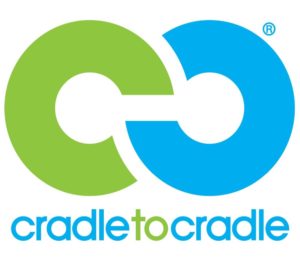
The Cradle to Cradle Products Innovation Institute is an international organization that offers sustainability certifications to manufacturers through its Cradle to Cradle Certified® program. It assesses products based on how they’re manufactured across five areas:
- Material Health: Ensuring materials are safe for humans and the environment.
- Product Circularity: Enabling a circular economy through regenerative products and process design.
- Clean Air and Climate Protection: Protecting clean air, promoting renewable energy, and reducing harmful emissions.
- Water and Soil Stewardship: Safeguarding clean water and healthy soils
- Social Fairness: Respecting human rights and contributing to a fair and equitable society
Certification requires a rigorous, six-step process. Companies must:
- Determine if the product is appropriate for certification
- Find an Accredited Assessment Body (which can be C2C, but others may qualify) that will test, analyze, and evaluate the product(s) against C2C assessment criteria
- Work with an assessor to compile, evaluate and document the assessment data
- Receive the C2C certification for the product
- Market the products to display the certification status
- Report on product progress to re-recertify every two years
Particularly given the last point, buyers who see a C2C certification should check the date. If it’s more than two years old, the product is no longer certified.
2. ECOLOGO
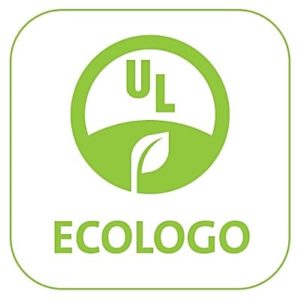
ECOLOGO® Certified products are those which are certified by the highly-recognized global certification company, UL. The ECOLOGO certification is available for companies intentionally attempting to reduce the environmental impact of their products. To note, UL has been in the product certification business since 1894, making it one of the most trusted certification organizations in the world.
The ECOLOGO certification is available for the following broad product categories:
- Building and construction materials (such as heating and cooling systems, carpet, and surface coatings)
- High tech and office products (such as office machines, digital cameras, and portable electronics)
- Mineral exploration products
- Paper and plastic products
- Personal care products
- Renewable energy products
- Toys
- Commercial Car Wash products
The certification process is robust. According to UL, “Products achieving UL ECOLOGO Certification follow the evaluation of multiple criteria throughout a product’s life, including energy use, waste disposal, and toxic reductions, among other areas.”
3. Forest Stewardship Council (FSC)

The FSC is a non-profit organization focused on sustainable forest management practices. To that end, it offers certifications for product manufacturers that utilize wood products within their supply chain. Companies that are concerned about sustainable forestry and which emphasize this in the manufacturing process can apply for this certification. FSC will assess the entire supply chain to identify whether the products meet its standards.
Furniture manufacturers, for example, will likely want to apply for the company’s Chain of Custody Certification, which verifies that the products separate sustainably-grown wood materials from non-sustainably grown wood materials, such that there is no mixing and matching in the construction process.
4. Greenguard & Greenguard GOLD
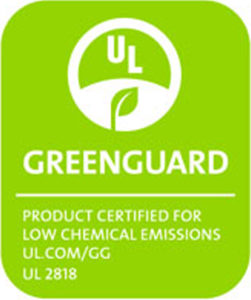
Another eco-friendly product certification from UL, Greenguard and Greenguard GOLD certifications are given to product manufacturers that produce products with low chemical emissions. The standard is set by UL, and products are assessed with a rigorous and scientific audit. For furniture manufacturers, this means furniture that produces low chemical emissions indoors, a critical product safety design.
The Greenguard & Greenguard GOLD certifications are available for the following product groups:
- Building materials, furniture and furnishings
- Electronic equipment
- Cleaning and maintenance products
- Medical devices for breathing gas pathways
5. Business + Institutional Furniture Manufacturers Association (BIFMA)
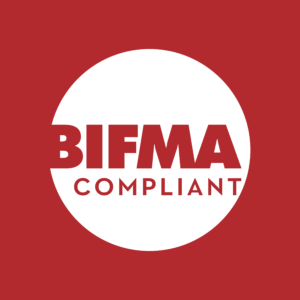
BIFMA is laser-focused on commercial furniture manufacturing standards. The organization offers certifications for all types of commercial furniture. More broadly, manufacturers can obtain BIFMA certification that aligns with low chemical emission standards. You may also find alignment with BIFMA low-emission standards through Scientific Certification Systems (SCS), which uses BIFMA’s standards to offer SCS certification of furniture with low chemical emissions.
As far as office furniture, BIFMA certifies a large list of potential products, including (but not limited to):
- Office seating
- Lounge and public seating
- Large occupant office seating
- Desk products
- Panel systems
- Small office/home office
Each product category requires separate certification standards to be met.
6. Sustainable Forestry Initiative (SFI)
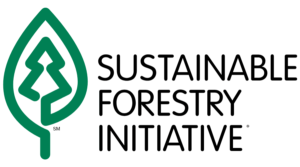
A non-profit organization that helps assess sustainable forestry practices, manufacturers that carry an SFI certification are those that source their raw materials from mills that use eco-friendly practices. This is similar in form and function to what you will find with the Forest Stewardship Council. Buyers will find a Chain of Custody certification offered through SFI, as well.
7. Leadership in Energy and Environmental Design (LEED)
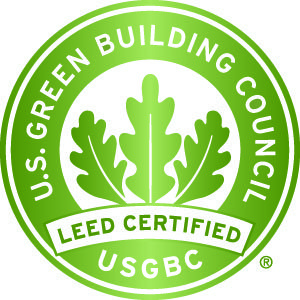
While it primarily focuses on eco-friendly construction design, LEED certification is available for furniture manufacturers, as well. LEED uses a points-based system to assess furniture manufacturers that minimize the use of harsh, environmentally unfriendly and unsafe chemicals, prioritize reused or reusable materials during construction, and source materials from eco-friendly providers, among other green-friendly aspects.
That said, LEED emphasizes holistic green building and space design that incorporates green products.
8. International Organization for Standards (ISO)
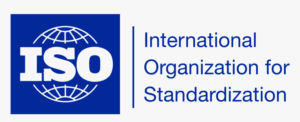
The ISO is one of the oldest standards-setting organizations in the world. Among its many standards, furniture shoppers will find multiple that are focused on environmentally-friendly product manufacturing. These include the ISO 14000 Family of standards that focus on Environmental Management, which helps buyers know that they are shopping from an eco-friendly company. Among the ISO 14000 family, ISO 14064 is particularly relevant to furniture buyers, as it deals with the reduction of greenhouse gas emissions during the manufacturing process.
Note that ISO is one of the largest certification bodies of its kind. As the company notes, there are over 300,000 certifications that tie to its ISO 14001 certification standard. The 14001 standards that ISO considers are not specific to furniture manufacturers, but offer companies a framework for being environmentally-conscious.
ISO has strict guidelines for the use of its logo. Follow this link for examples of ISO’s certification logos.
9. International WELL Building Institute’s WELL Building Standard
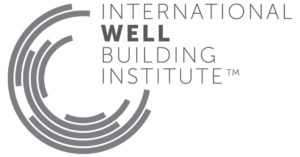
The International WELL Building Institute was created to help organizations become more conscious of building and material designs that focus on the well-being of the people using them. That includes standards for the use of materials. WELL-certified furniture manufacturers are those that create furniture that limits the use of chemicals that may have a direct or indirect impact on the health of the environment.
For example, companies that meet the X05 Enhanced Material Restriction Standard are those that significantly minimize their use of Halogenated flame retardants (HFR), per- and polyfluoroalkyl substances (PFAS), lead, cadmium, and mercury within the product textiles, or that do not contain textiles or plastics at all.
10. LEVEL Certification
![]()
Alongside its other certifications, BIFMA offers what it calls its LEVEL certification. LEVEL is its eco-friendly stamp of approval focused purely on sustainability in the manufacturing and materials used in furniture. Products that achieve LEVEL certification are assessed on three criteria:
- Environmental impact
- Health and wellness impact
- Social impact
Manufacturers and their products are assigned a Level 1, Level 2, or Level 3 rating, depending on how they align with the certification standards.
11. MAS Certified Green

Furniture manufacturing has traditionally relied on chemical treatments and other chemical-heavy processes. Companies that are focused on producing eco-friendly furniture shy away from using harsh chemicals as much as possible. MAS Certified Green products are those that the organization verifies have reduced their usage of chemicals such that the products have low emissions indoors.
Materials Analytical Services, LLC (MAS), certifies companies through its own criteria, as well as criteria established by BIFMA, the California Department of Public Health (CDPH) Standard Method, and formaldehyde testing standards established by the California EPA. Testing is focused on laboratory results that show low chemical emissions.
Are you in the market for sustainable, eco-friendly office furniture? Mammoth Office Furniture carries a wide selection of furniture from companies that have applied for and obtained many different green certifications. Contact us today to learn about our entire catalog of sustainable office furniture.
